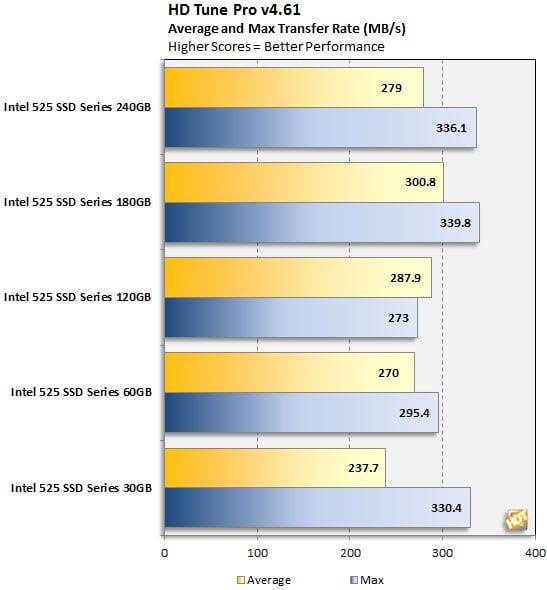Examining Intel's 525 Series mSATA Solid State Drive
On a more serious note, we updated the NUC's BIOS to the latest available (GKPPT10H.86A, version 0039 released on March 4, 2013). Other specs include an Intel Core i3 3217-U processor, 4GB of DDR3-1333 SO-DIMM memory, and Windows 8 64-bit.
Benchmarks
![]()
SiSoft SANDRA
Synthetic General Performance Mertrics
 30GB Intel 525 |
 60GB Intel 525 |
 120GB Intel 525 |
 180GB Intel 525 |
 240GB Intel 525 |
|

The Intel 525 Series mSATA drives performed right in-line with their specified ratings in the ATTO Disk Benchmark. All of the drives put up good scores, with the higher capacity drives outpacing the smaller models.
|
EFD Software's HD Tune is described on the company's web site as such: "HD Tune is a hard disk utility with many functions. It can be used to measure the drive's performance, scan for errors, check the health status (S.M.A.R.T.), securely erase all data and much more." The latest version of the benchmark added temperature statistics and improved support for SSDs, among a few other updates and fixes.








